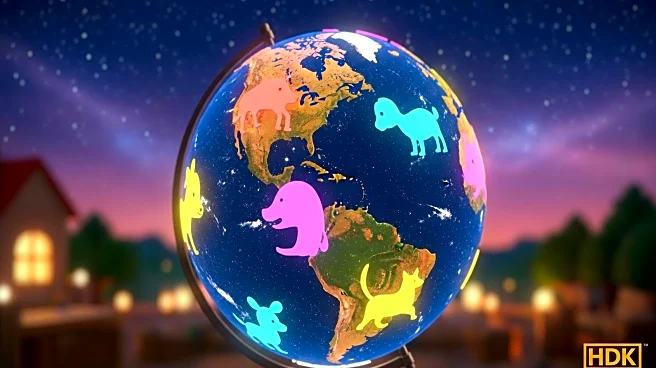What is the story about?
What's Happening?
Nintendo's localization team faced significant challenges in adapting Animal Crossing for a global audience. Initially released as Animal Forest in Japan, the game was filled with cultural references and extensive in-game text specific to Japan. Leslie Swann, Nintendo's localization manager, recounted how then-Nintendo president Satoru Iwata expressed disbelief at the feasibility of localizing the game for English-speaking markets. Despite these challenges, Swann's team undertook the task of renaming characters, adjusting catchphrases, and modifying in-game events to make the game accessible worldwide. The localization process was extensive, requiring the team to dedicate significant resources to ensure the game's success outside Japan. The game eventually launched globally on the GameCube, marking a significant milestone in Nintendo's history.
Why It's Important?
The successful localization of Animal Crossing highlights the importance of cultural adaptation in the gaming industry. By overcoming the initial skepticism and logistical challenges, Nintendo demonstrated the potential for Japanese games to achieve global success. This move not only expanded Nintendo's market reach but also set a precedent for future localization efforts. The game's success contributed to the growth of Nintendo's brand and influenced the company's approach to international markets. It underscores the significance of understanding cultural nuances and the impact of localization on a game's reception and commercial success.
What's Next?
The success of Animal Crossing's localization may encourage Nintendo to continue investing in adapting other culturally specific games for global audiences. This could lead to more diverse offerings in international markets and potentially increase Nintendo's market share. Additionally, the lessons learned from this process could inform future localization strategies, ensuring smoother transitions for other games. As the gaming industry continues to expand globally, companies like Nintendo may prioritize localization to cater to diverse audiences and enhance their competitive edge.
Beyond the Headlines
The localization of Animal Crossing also raises questions about the balance between maintaining cultural authenticity and ensuring global accessibility. As gaming becomes increasingly international, developers must navigate the complexities of preserving cultural elements while making games relatable to a broader audience. This process can influence the cultural exchange between regions and contribute to the global gaming culture.















